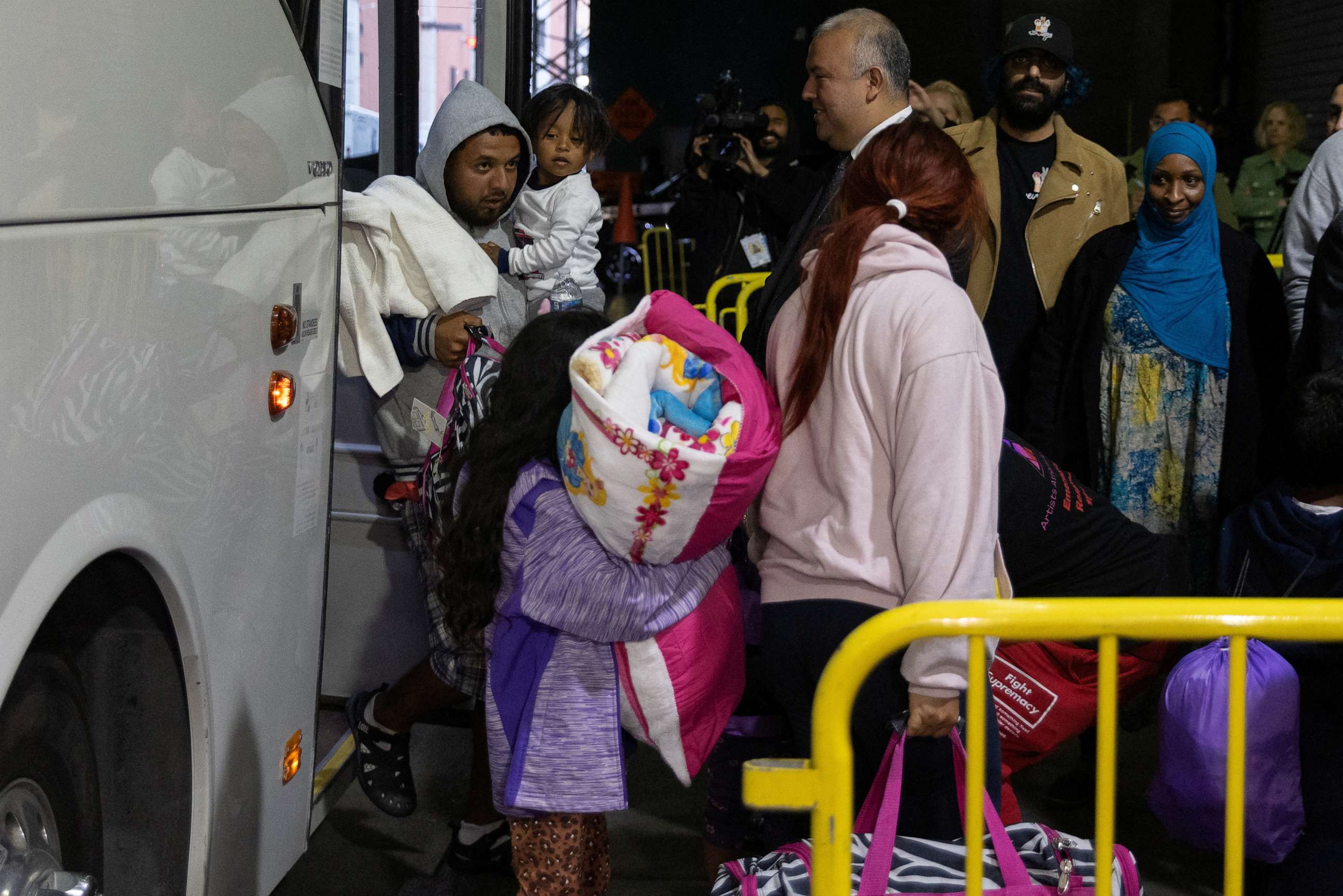New York City's iconic Roosevelt Hotel reopens as 'asylum-seeker arrival center'
The hotel's arrival center is the first of its kind in New York City.
New York City's iconic Roosevelt Hotel reopened its doors over the weekend after nearly three years -- but this time, to a slightly different clientele.
The historic hotel, which was built in the 1920s and named in honor of President Theodore Roosevelt, is now hosting New York City's first "asylum-seeker arrival center" amid an expected influx of migrants, Mayor Eric Adams announced Saturday.

Located in Midtown Manhattan near Grand Central Terminal, the Roosevelt Hotel is "serving as a centralized intake center for all arriving asylum seekers and providing migrants with access to a range of legal, medical and reconnection services, as well as placement, if needed, in a shelter or humanitarian relief center," according to Adams.

The mayor said asylum-seekers arriving in New York City will be directed to the arrival center at the Roosevelt Hotel, which will also open up 175 rooms for children and families until it is scaled to approximately 850 rooms. An additional 100 to 150 rooms will be reserved for asylum-seekers in transition to other locations. Asylum-seekers already in the city's care will also have access to the arrival center and its services, according to Adams.

Adams described the asylum-seeker arrival center as the first of its kind in New York City. It is also the ninth Humanitarian Emergency Response and Relief Center that the city has opened along with 140 emergency shelters since more than 65,000 asylum-seekers have arrived in the city -- a number that is "expected to rapidly accelerate" now that so-called Title 42 restrictions have lifted, the mayor said.
The restrictions, which lifted at 11:59 p.m. ET last Thursday, were a pandemic-related immigration policy that allowed the United States to swiftly turn back migrants at its border with Mexico for the last three years in the name of protecting public health.
Adams said New York City has reached its capacity and called for additional support from the state and federal governments as the city grapples with the "crisis."




